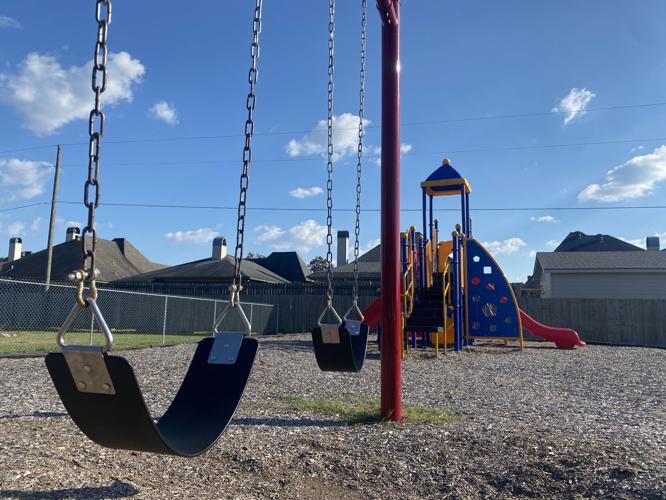Experts say keeping mothers and their children together as they move through substance abuse treatment improves their chances of lasting recovery.
In Scott, patients at Meredith’s Place, a family-based rehab, are able to do just that.
Allowing women to enter treatment in the company of their children also means they don’t have to risk their parental rights in order to get better.
“The biggest benefit is that their children don't end up in foster care,” said Claudia Fergus, clinical supervisor at Meredith’s Place.
Losing their children may lead to women relapsing after treatment, while the risk of losing their children may lead them to avoid seeking treatment in the first place.
There are other benefits too.
At Meredith’s Place, both mothers and children attend weekly counseling sessions to help them process their experiences as part of a family where substance abuse, and often domestic violence, was present. Mothers also receive parenting classes and advice on budgeting and other life skills. A dietician helps them come up with and prepare healthy meals for themselves and their families.
Parenting while sober looks a lot different than parenting while actively using drugs, Fergus said. While mothers are in active addiction, they can lose sight of their children’s needs, for example, by relying on older children to take care of younger siblings — something Fergus referred to as “parentifying.”
“They have the opportunity to learn new parenting skills,” Fergus said of the mothers in the program. “You’re changing those patterns of parenting while they’re here.”
The women in the program move through four phases, during which they continuously build skills and create conditions that will allow them to lead a more stable life once they exit Meredith’s Place. Women can stay in the program for up to a year, while they attend therapy, find employment, take charge of their finances and save up for a life after the program.
Still, the transition can be difficult, said George Mills, executive director of The Extra Mile, the Lafayette-based nonprofit that runs the facility. The program is funded through the federal Temporary Assistance for Needy Families program, which caters to low-income mothers.
The gap between the wages the women in the program can expect to earn, especially as they reenter the workforce, and the local cost of housing can prove prohibitive, “unless they have some other kind of resources or family support, which many of them don't,” Mills said.
To help overcome this challenge, The Extra Mile is planning to add transitional housing on the 6.5 acre property. After exiting the program, women and their children could live there until they’re financially ready to venture out on their own.
“The transitional housing gives them some stability, some independence,” Fergus said. But, it also “keeps them in a more protected environment.”
Being located next door to the treatment facility allows easy access to sobriety group meetings after work, something that can be difficult to access for single mothers who often have to arrange childcare to attend in the outside world.
The nonprofit is currently in conversations with the parish and state government to identify potential funding sources for the expansion.
Despite their proven benefits and success, funding has been a challenge for programs like the one at Meredith’s Place, which is likely one of the reasons why they remain exceedingly rare. There are only four such programs in Louisiana and numbers in other states look similar.
“The really big players usually stay away from this, because it’s very management-intensive,” Mills said. “The margins are horrible.”
This gap in service leaves smaller nonprofit providers like The Extra Mile to fill in the void, which doesn’t allow for larger-scale growth of program capacities. Meredith’s Place is currently licensed for 17 clients, children included, and has a contract with the federal government to serve 16.
The program can be life-changing. One mother has been in the program for six months, has remained sober and currently works at a grocery store. Once she graduates out of the program, like the 52 women and 85 children before her, she hopes to become a phlebotomy tech.





